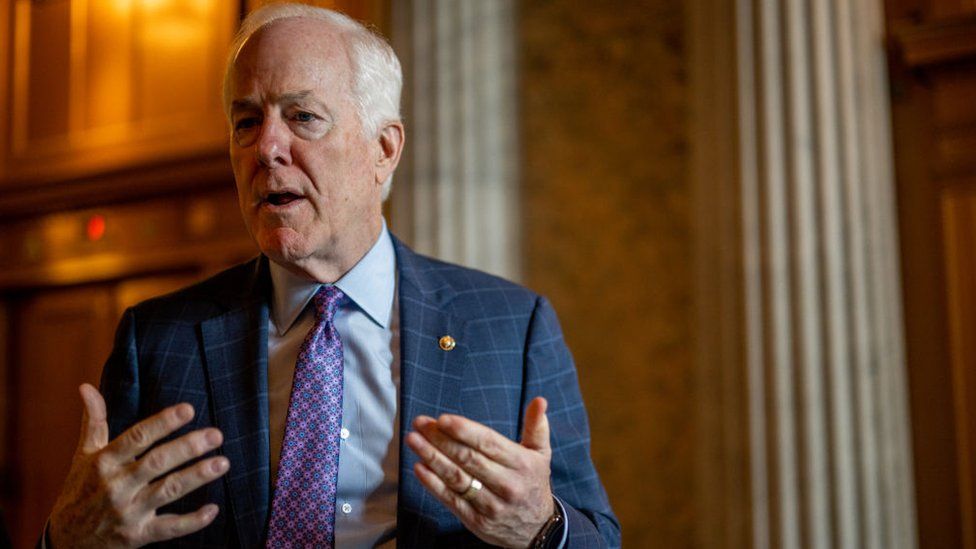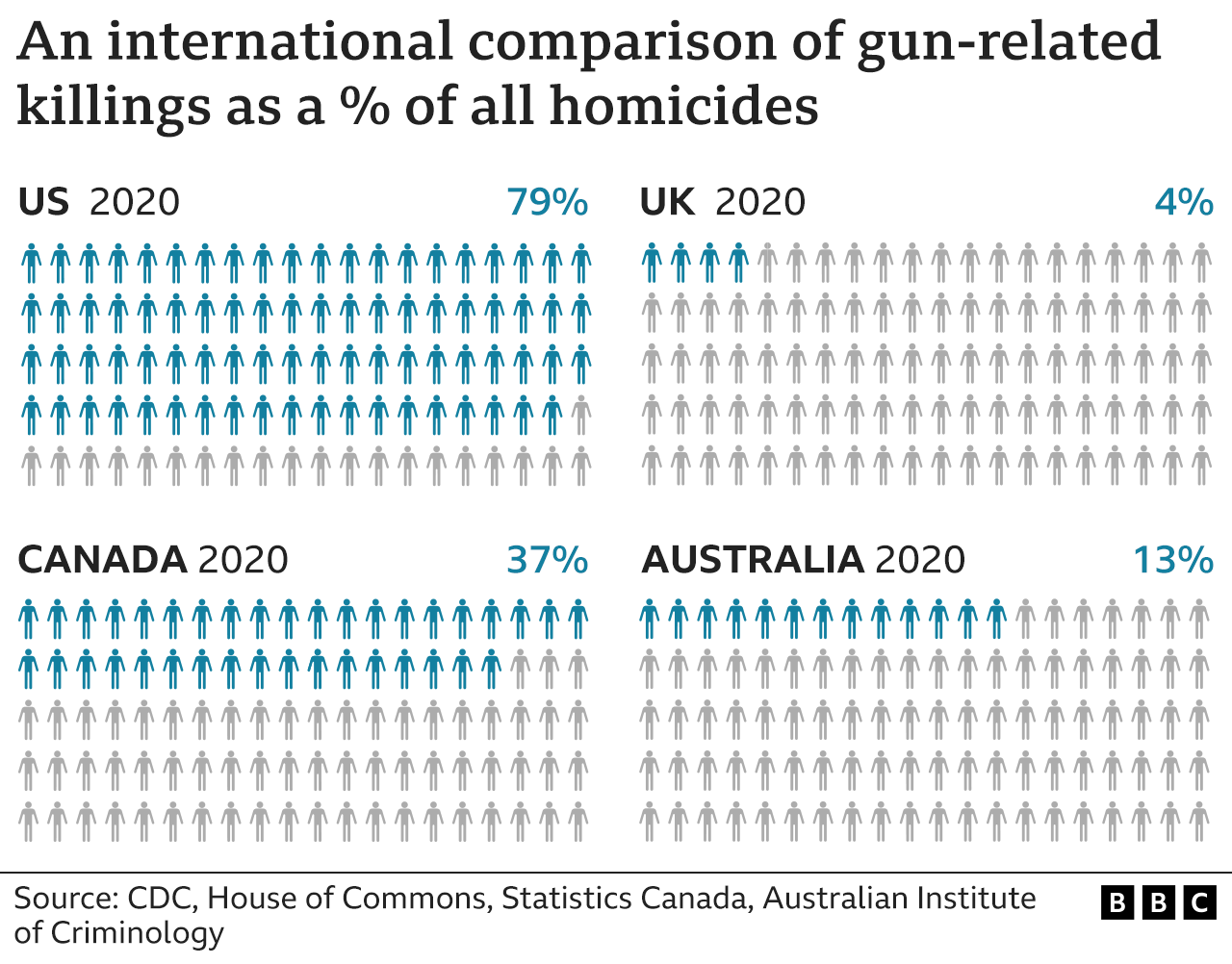BBC News 24 June 2022 - by George Wright and Matt Murphy
The US Senate has passed a gun control bill - the most significant firearms legislation in nearly 30 years.
It imposes tougher checks on young buyers and encourages states to remove guns from people considered a threat.
In a rare bipartisan breakthrough on gun control measures, 15 Republicans joined Democrats in the Senate to approve the bill.
A vote in the Democrat-controlled House of Representatives is expected soon.
The president urged a quick vote "on this bipartisan bill" despite it falling far short of his demands. Gun control activists and most Democrats would also like to see far more stringent measures on gun control.
"Tonight, after 28 years of inaction, bipartisan members of Congress came together to heed the call of families across the country and passed legislation to address the scourge of gun violence in our communities," Mr Biden said.
The bill came after mass shootings last month at a supermarket in Buffalo, New York, and a primary school in Uvalde, Texas, that left 31 people dead.
The reforms include:
- Tougher background checks for buyers younger than 21
- $15bn (£12.2bn) in federal funding for mental health programs and school security upgrades
- Funding to encourage states to implement "red flag" laws to remove firearms from people considered a threat
- Closing the so-called "boyfriend loophole" by blocking gun sales to those convicted of abusing unmarried intimate partners
President Biden has pushed for bigger reforms - including a ban on assault weapons, which were used in the Texas and Buffalo mass shootings - or at least an increase in the age at which they can be purchased.
The gunman in the Texas shooting is believed to have purchased two semi-automatic rifles days after turning 18.
Important milestone
The bill is also significant because it is the first time in decades that proposed reforms have received this level of support from both Democrats and Republicans.
Historically, efforts to strengthen US gun laws have been blocked by the Republican party.
This time the vote in the 100-member Senate was 65-33.
All 50 Democrats, including the party's most conservative members, Senators Joe Manchin and Kyrsten Sinema, voted for the bill.
They were joined by deal-making Republicans, including the party's Senate Leader Mitch McConnell and Lindsey Graham, who is a close ally of former President Donald Trump and a traditional opponent of gun-control legislation.
However, two-thirds of Senate Republicans opposed the legislation, and all of those who backed it - except for Alaska's Lisa Murkowski and Indiana's Todd Young - will not face voters in November this year or have announced their intention not to seek re-election.
Texas Senator Ted Cruz, who is widely tipped to seek the Republican presidential nomination in 2024, condemned the bill as an attempt to "try to disarm law-abiding citizens rather than take serious measures to protect our children".
Gun safety group March For Our Lives - founded by survivors of the 2018 Parkland school shooting in Florida - welcomed the advancement of the bill.
"We know there's A LOT more work to be done to end this epidemic. But a lot of hard work got us to tonight. We refuse to quit or be silenced. Ending gun violence is the fight of our lifetime," the group tweeted.
The National Rifle Association (NRA) has opposed the bill, and argued that it will not stop the violence.
Why is gun control such a big deal?
There are an estimated 393 million firearms currently in the US.
It has the highest rate of firearms deaths among the world's wealthy nations - more than 20,900 people have been killed in gun violence in the US this year, including through homicide and suicide, according to Gun Violence Archive, a non-profit research group.
But it is also a country where many cherish gun rights that are protected by the Constitution's Second Amendment to "keep and bear arms".
The last significant federal gun control legislation was passed in 1994, banning the manufacture for civilian use of assault rifles and large capacity magazines - but it expired a decade later.
On Thursday, the Supreme Court struck down a New York law restricting who can legally carry a gun - effectively expanding gun rights.
Although polls indicate a majority of Americans support gun control efforts, many Republican senators represent states with large pro-gun communities.
And the Republican voters whose support they need to win primary elections - the selection process within each party - are even more opposed to reform.


